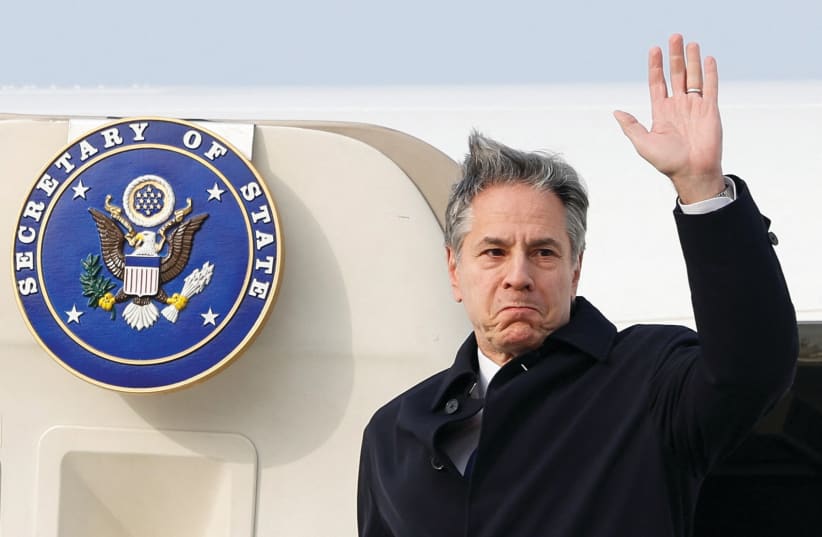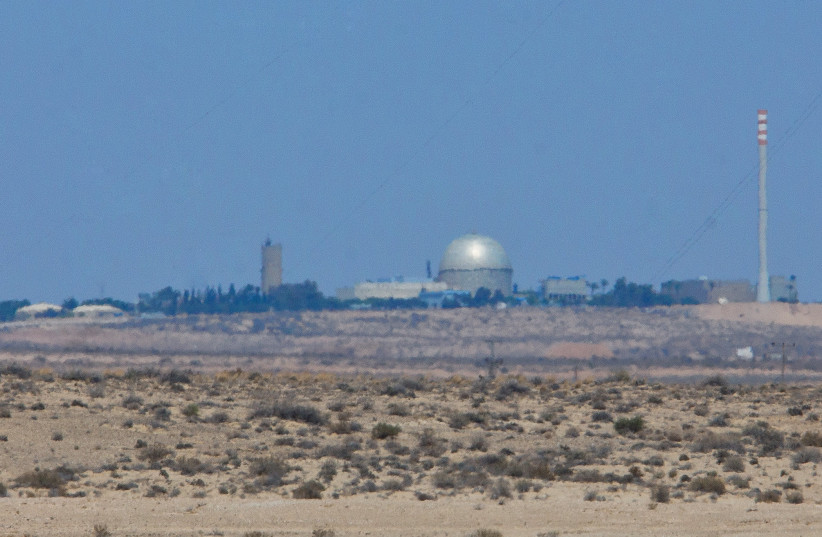" Deterrence theory refers to the scholarship and practice of how threats or limited force by one party can convince another party to refrain from initiating some other course of action. The topic gained increased prominence as a military strategy during the Cold War with regard to the use of nuclear weapons and is related to but distinct from the concept of mutual assured destruction, according to which a full-scale nuclear attack on a power with second-strike capability would devastate both parties. The central problem of deterrence revolves around how to credibly threaten military action or nuclear punishment on the adversary despite its costs to the deterrer.[1] Deterrence is one strategy to achieve peace and avoid conflict escalation in peace and conflict studies. "
Israel’s nuclear capabilities, though never officially confirmed, are widely recognized as part of its national defense strategy.

The alliance between the United States and Israel, established shortly after Israel’s founding in 1948, is a cornerstone of their foreign policies. Rooted in shared democratic values, strategic interests, and a dedication to Middle Eastern security, this partnership has been instrumental in ensuring Israel’s security through military aid, diplomatic support, and collaborative efforts in military exercises, intelligence sharing, and technology. This relationship underscores a mutual commitment to regional peace and stability.
Israel’s nuclear capabilities, though never officially confirmed, are widely recognized as part of its national defense strategy. It is generally understood that Israel possesses a sophisticated arsenal, including nuclear warheads, which serve as a cornerstone of its deterrence policy. Despite the policy of ambiguity, or “nuclear opacity,” this unconfirmed arsenal is a critical element of the Middle Eastern security landscape. It underscores the strategic depth Israel maintains in defense of its sovereignty and security interests in a volatile region.
Shifts in US-Israel ties
However, during the administrations of President Joe Biden and his predecessor Barack Obama, we have witnessed a gradual shift in this historic alliance, diverging from the longstanding support that Israel has traditionally received.
This shift is influenced by evolving demographics and opinions within the Democratic Party and the greater influence afforded to the State Department under Secretary Antony Blinken. A series of recent actions and statements by the Biden administration during the October 7 War underscores this concerning trend.
These include providing Iran with a $10 billion sanctions waiver, imposing sanctions on Israeli Jews, pushing aggressively for a ceasefire, suggesting that Israel’s top priority should be aiding Gazans rather than winning the war, limiting the supply of weapons and munitions, and Senate Majority Leader Chuck Schumer’s unprecedented call for the ouster of Prime Minister Benjamin Netanyahu. Such actions are proactively undermining Israel’s security and sovereignty and signal a potential shift in the foundational support from its most significant ally.

In light of these concerning developments, Israel must swiftly enhance its strategic defense capabilities to solidify its military self-reliance. This necessitates dramatically increasing the number of nuclear warheads in Israel’s arsenal and advancing and diversifying their delivery systems. Such expansion would ensure a robust, multifaceted deterrent capable of securing Israel’s sovereignty and protecting its citizens in an increasingly uncertain geopolitical landscape.
Simultaneously, Israel must strive to maintain and strengthen its alliance with the United States, leveraging diplomatic avenues to revitalize this essential relationship. Enhancing Israel’s defense capabilities and its international alliances are complementary strategies that safeguard its national security interests.
In an era marked by shifting global alliances and uncertainties, expanding and augmenting Israel’s nuclear arsenal is crucial for safeguarding its future. This strategic imperative would ensure that Israel remains a significant power in the Middle East, capable of defending its interests and ensuring the security of its citizens, regardless of the changing geopolitical dynamics.
> The alliance between the United States and Israel, established shortly after Israel’s founding in 1948
ReplyDeleteIncorrect. Until the Six Day War, the US stood aloof from Israel since it still hopes to lure the Arabs away from Soviet influence. It was only after the Six Day War that the US started helping Israel.
At any rate, it's not just nukes. Let's face it - when Israel uses it's nukes, the entire country is toast because that means the enemy (likely Iran at this point) will be send nukes as well. It's about domestic military production, something Israel outsourced decades ago to satisfy American conditions for military aid. Israel has to reopen all its factorys and become self-sufficient for what it needs so when the US and UK threaten to slow or cut off arms packages, the Jews can just roll their eyes.
https://www.trumanlibrary.gov/library/public-papers/253/statement-president-israel
ReplyDeletehttps://www.trumanlibrary.gov/education/presidential-inquiries/recognition-israel
ReplyDelete11 minutes after Israel declared its independence, Truman made good on his friend's request: “The United States recognizes the provisional government as the de facto authority of the new State of Israel,” Truman wrote.
ReplyDeletehttps://www.jewishvirtuallibrary.org/president-truman-statement-on-israel-october-1948
ReplyDeleteYes, he recognized Israel and 5 minutes later slapped an arms embargo on it.
ReplyDeleteFor the first 20 years, Israel had to get its weapons from France and Britain.
The USS St Louis was sent to assist Egyptian forces in the Six Day War.
No, the US wasn't hostile but it wasn't an ally.
https://en.wikipedia.org/wiki/List_of_United_Nations_resolutions_concerning_Israel
ReplyDelete